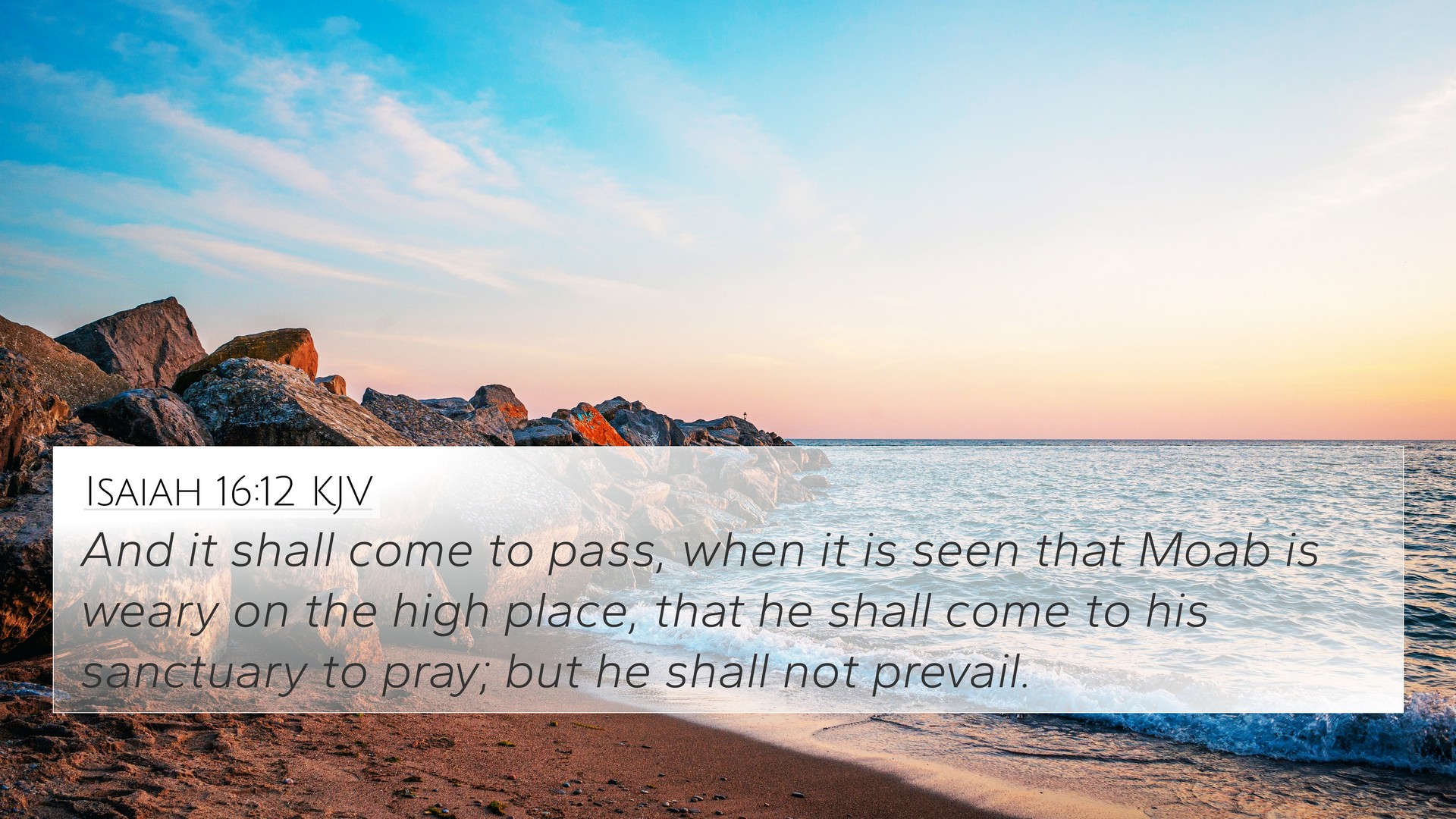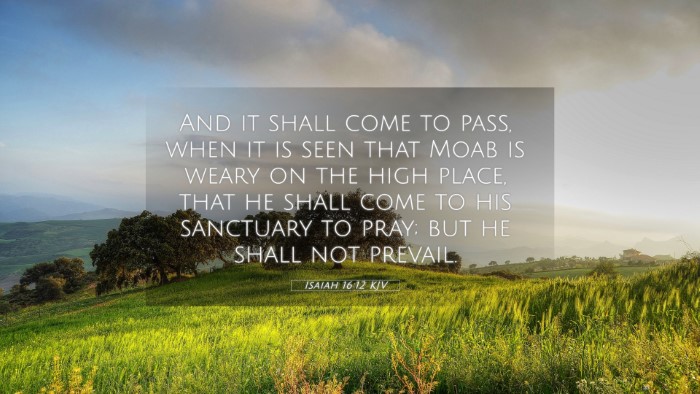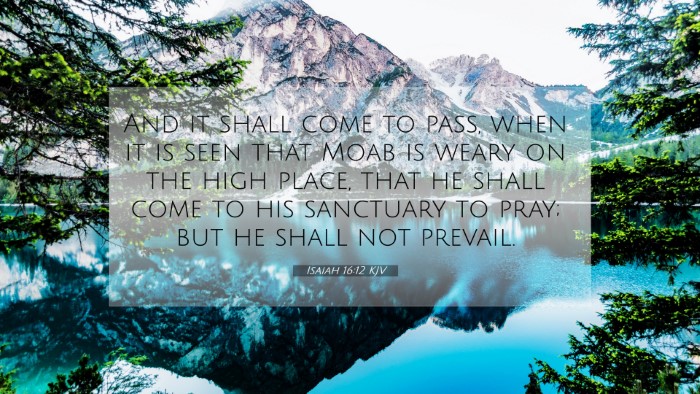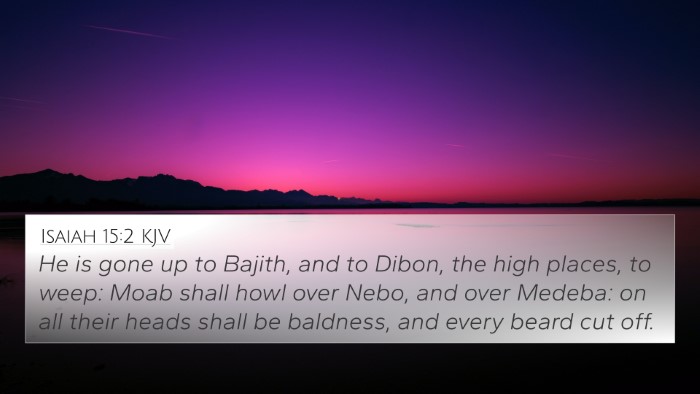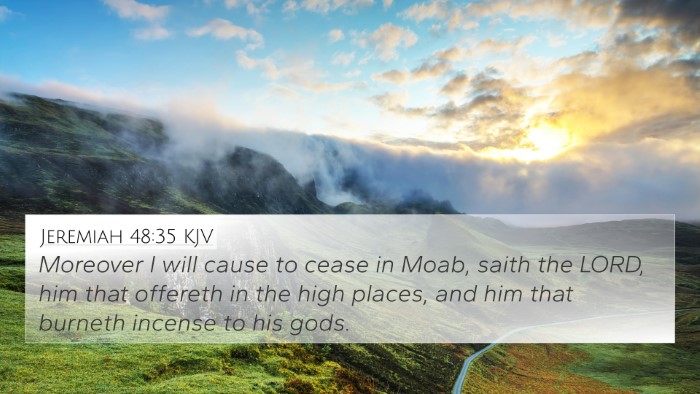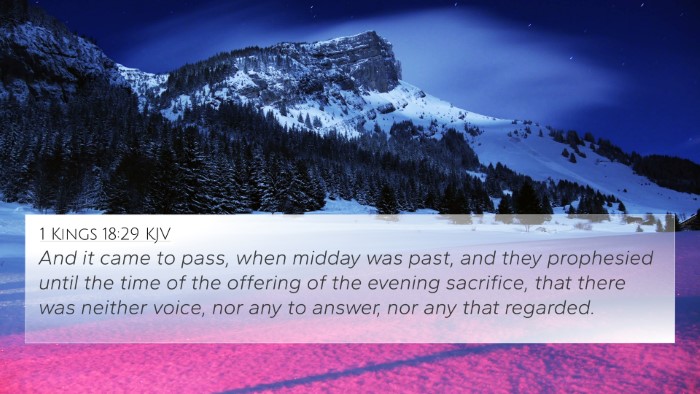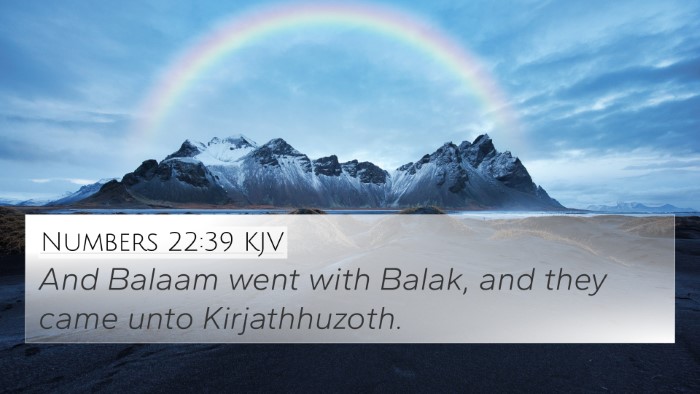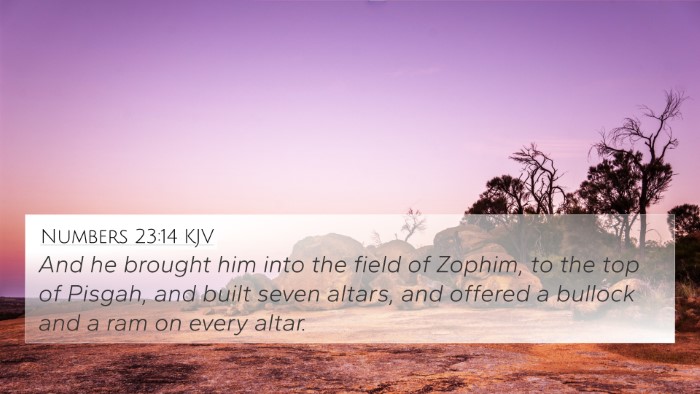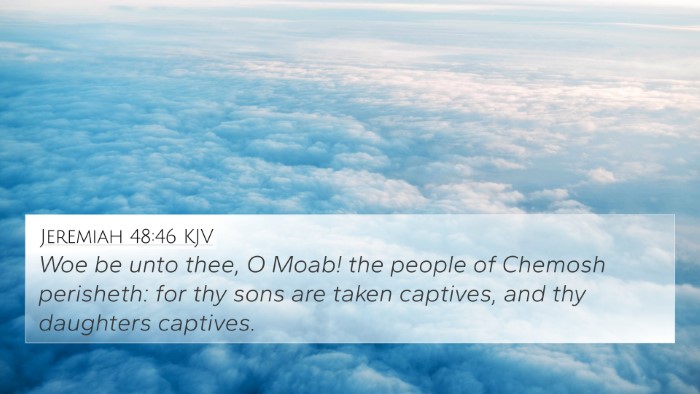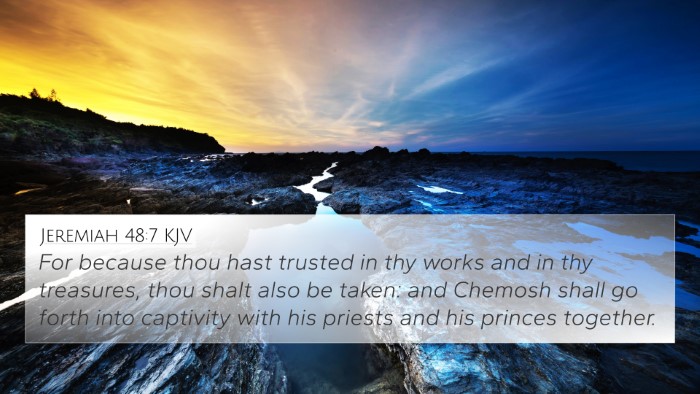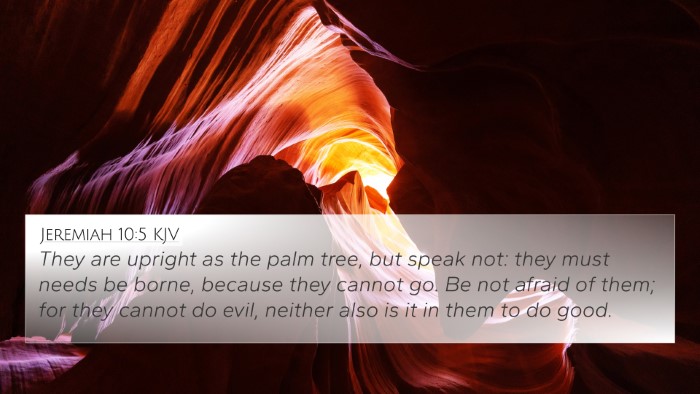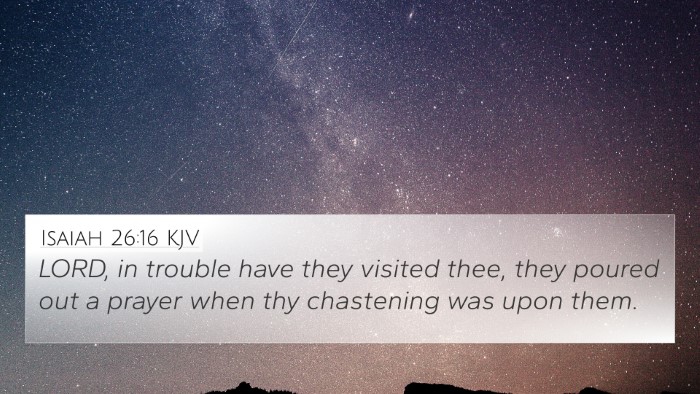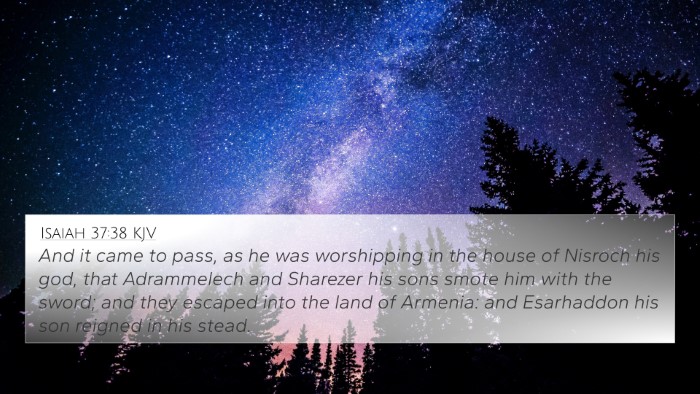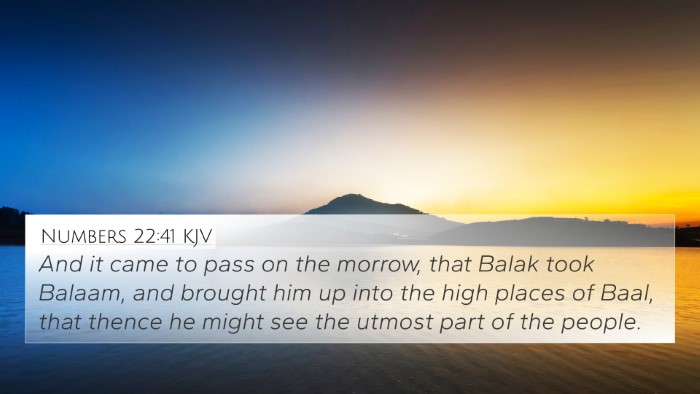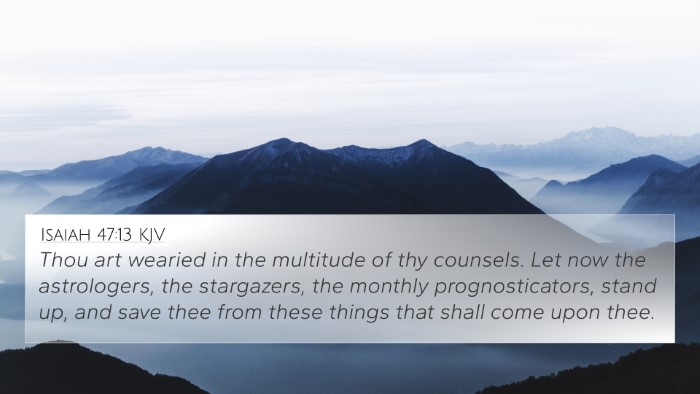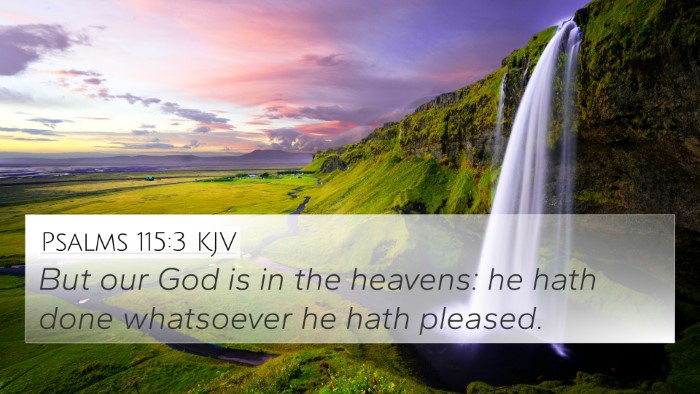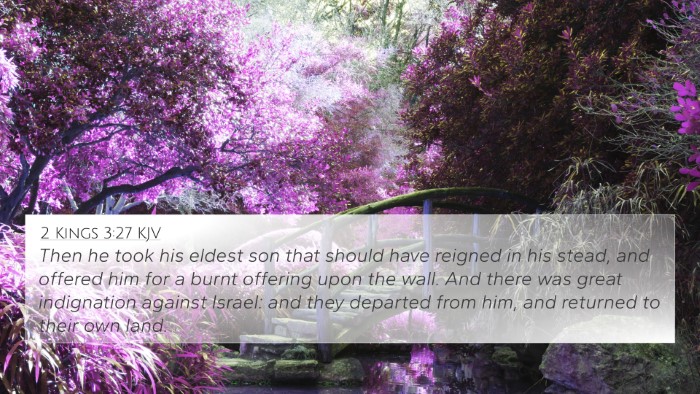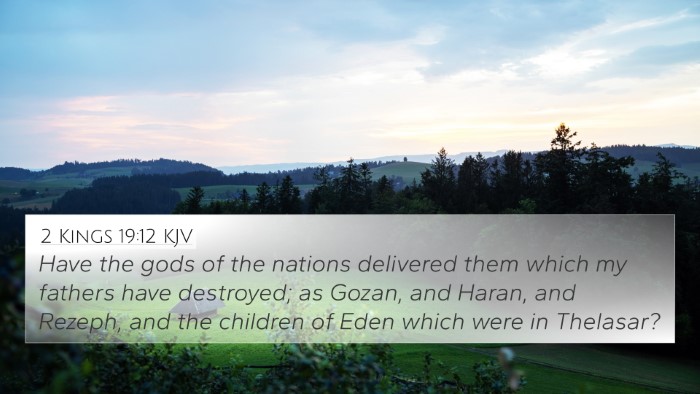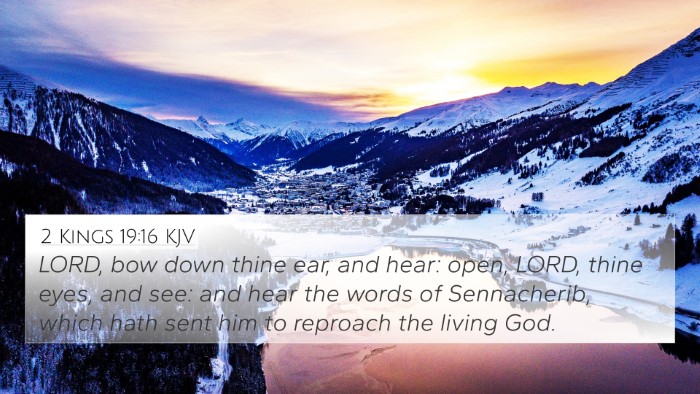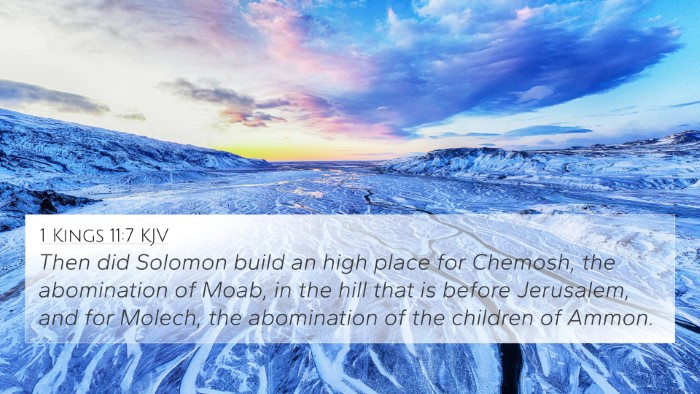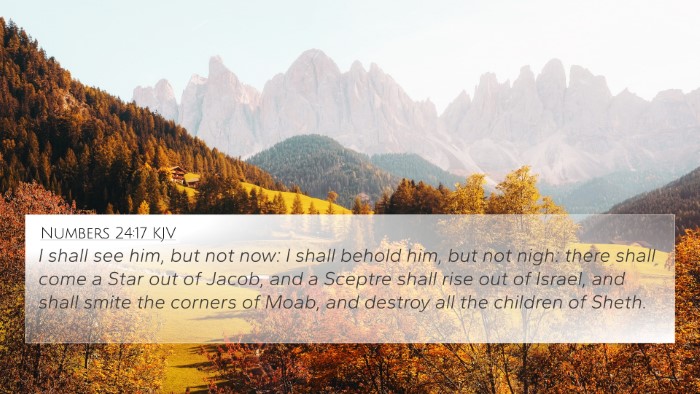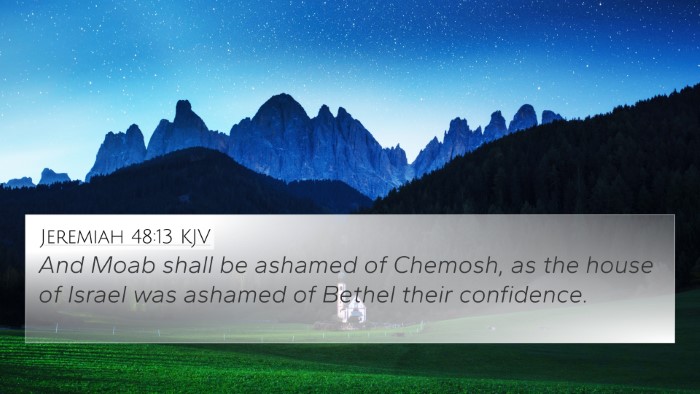Understanding Isaiah 16:12
The verse Isaiah 16:12 states:
"And it shall come to pass, when it is seen that Moab is weary on the high place, that he shall come to his sanctuary to pray; but he shall not prevail."
This verse captures a significant moment in the prophecy concerning Moab, reflecting themes of desperation, the futility of misplaced worship, and the reassurance of God's sovereignty. Below is a breakdown of its meaning using insights from well-known public domain commentaries.
Contextual Overview
Isaiah's prophecies often address the fate of nations bordering Israel, including Moab. In Isaiah 16, the focus is on Moab's impending doom due to their pride and idolatry. The verse signifies a moment of realization and helplessness for the Moabites.
Commentary Insights
Matthew Henry's Commentary: Henry emphasizes that the weariness of Moab from its high places symbolizes spiritual exhaustion. Moab's high places were sites of idolatry and false worship. Coming to the sanctuary for prayer indicates a recognition of their plight, yet it is futile because genuine repentance and reliance on the true God are absent.
Albert Barnes' Notes: Barnes highlights the irony in the Moabites’ actions. Despite their efforts to pray in their sanctuary, they will not succeed because they are seeking help in a place that cannot provide true deliverance. The sanctuary referenced is likely their pagan temple, which lacks the power of the true God.
Adam Clarke's Commentary: Clarke points out that the high places represent the peak of their arrogance and reliance on idolatry. His interpretation stresses that the Moabites' prayers will not reach God, as they worship idols that cannot save them in times of crisis.
Thematic Connections
Isaiah 16:12 suggests a theme of the futility of idolatry and the need for true worship. This is a recurrent motif throughout Scripture where reliance on false gods leads to consequences.
Related Bible Verses
- Jeremiah 48:2: "There is none to make him [Moab] weary."
- Psalm 18:30: "As for God, His way is perfect."
- Isaiah 1:15: "When you spread out your hands, I will hide my eyes from you."
- Micah 5:10: "And it shall come to pass in that day, saith the Lord, that I will cut off thy horses out of the midst of thee."
- Isaiah 29:13: "Their worship is based on merely human rules."
- Isaiah 45:20: "Assemble yourselves and come; draw near together."
- Zephaniah 1:5: "Those who bow down on the roofs to worship the starry host."
Cross-Referencing Insights
Cross-referencing Bible texts is vital for understanding themes and messages throughout Scripture. Here are some tools and ideas to enhance your study:
- Bible Concordance: Essential for finding specific words and their occurrences throughout the Bible.
- Bible Cross-Reference Guide: Helps identify verse connections and relations between different texts.
- Cross-Reference Bible Study: Engaging in this method enriches understanding and provides a holistic view of Biblical narratives.
- How to Use Bible Cross-References: Techniques for employing these references in personal study or teaching.
Inter-Biblical Dialogue
The connections within the Bible create a robust dialogue between verses. For instance, analyzing Old Testament prophetic texts like Isaiah alongside New Testament teachings can illuminate theological themes of repentance, faith, and God's justice.
Conclusion
Isaiah 16:12 serves as a powerful reminder of the consequences of idolatrous worship and the importance of sincere devotion to God. Understanding this verse through the insights of noted commentaries provides depth to its meaning while highlighting the continuity of Scripture through thematic and cross-referencing studies.
In your studies, consider the profound implications of reliance on God versus idols, and how this ultimately leads to spiritual fulfillment and hope.
